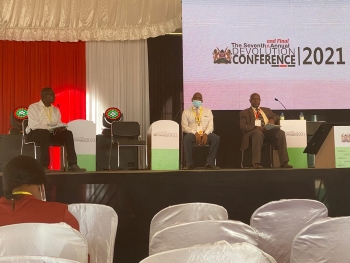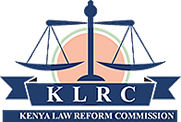The seventh annual devolution conference was held in Makueni county Wote town in November 2021. KLRC was represented by Mr. Mathew Kimanzi Deputy Director in legislative directorate in the legislative segment of the conference. The theme of the session was recovery and re-engineering of local trade and manufacturing in the wake of climate change and pandemics. One of the objectives of the session was to deliberate on actions that state and non-state actors can take to recover, cushion and build a sustainable and resilient local investment industry.

The panelists discussed on what legislative interventions counties can adopt to cushion traders and manufacturers from the effects of climate change and future pandemics. Addressing climate change and effects of pandemics represents one of the defining challenges of our time, and requires concerted action at the international, national and county levels.
The debate in this conference took place against the backdrop of vital multilateral climate change negotiations, which were concluded at the 26th Conference of the Parties to the United Nations Conference on Climate Change in October, 2021 in Glasgow, Scotland. County governments in Kenya are strategic points when it comes to implementing change. This is because they engage with the electorate at a very personal level.
Following the functions donated to counties in the Fourth Schedule of the Constitution, County Governments may make policies and enact laws:
- to minimize Greenhouse gas emissions generated by human activities which results in global warming. There is a wide range of policy measures available to county governments to help reduce greenhouse gas emissions. They are typically either regulatory measures (i.e. regulations and standards) or economic incentives (e.g. subsidies, tax waivers) to traders;
- aimed at preventing carbon leakage and at protecting competitiveness of energy-intensive industries;
- on cleaner production techniques. This will align with the global shift to a low-carbon economy and export comparative advantages;
- on promotion of trade, since trade promotes the spread of critical environmental goods and services that can help reduce emissions and improve environmental management; and
- on accepted standards of imports which are critical to immediate recovery from a natural disaster, when essential items such as food and medicines are in short supply.
As part of the legislative interventions, County Governments could develop legislation aimed at operationalizing the climate fund directed at mitigating climate change.
